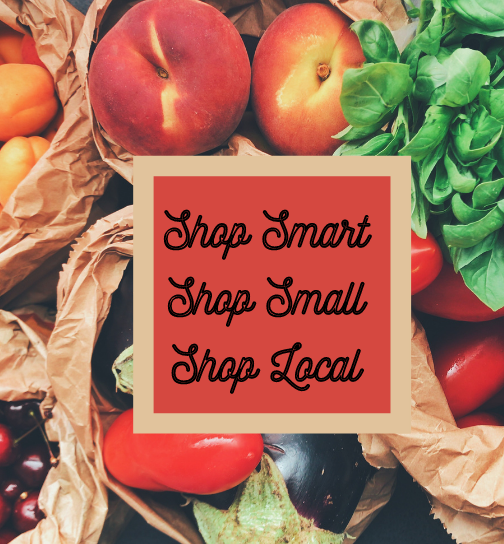Sustainability - Green Notes
Importance of Buying Local
 Convenience is the modern person's favorite noun. Convenience is easy, affordable,
and well… convenient. However, easy is not always best. Big chain grocery stores are
a great example of this convenience that consumers so love. It is so simple to run
to the store after work to pick up a few onions and carrots for dinner, but do you
know how inconvenient it was to get said produce to the grocery store? This brings
me to a concept that you may or may not have heard of before: food miles. Food miles
are exactly what they sound like— the amount of miles your food must travel (by boat,
plane, truck, etc) in order to get to you. Obviously, this creates a large amount
of pollution as well as being costly in both time and money. Not to mention the large
carbon footprint this food acquires on it’s journey. When you buy local food, you
cut out the middle man as there is no need for a near fifteen hundred mile journey.
Convenience is the modern person's favorite noun. Convenience is easy, affordable,
and well… convenient. However, easy is not always best. Big chain grocery stores are
a great example of this convenience that consumers so love. It is so simple to run
to the store after work to pick up a few onions and carrots for dinner, but do you
know how inconvenient it was to get said produce to the grocery store? This brings
me to a concept that you may or may not have heard of before: food miles. Food miles
are exactly what they sound like— the amount of miles your food must travel (by boat,
plane, truck, etc) in order to get to you. Obviously, this creates a large amount
of pollution as well as being costly in both time and money. Not to mention the large
carbon footprint this food acquires on it’s journey. When you buy local food, you
cut out the middle man as there is no need for a near fifteen hundred mile journey.
Another important element of buying local food is that less food is wasted. Food waste is quite the issue in big chain grocery stores. Oftentimes, people will not purchase that slightly spotted banana, the bruised apple, or even the misshapen potato due to the fact that they are seemingly “imperfect.” More times than not, this perfectly fine produce is thrown away. An amazing company called Misfits Market compiles these “imperfect” fruits and veggies and sends them straight to your door. Misfits Market is a subscription based website, and you can receive these boxes weekly or bi-weekly. It is also important to be aware of the fruits and veggies that you buy weekly and to make sure that you use them all up before buying more. To find out how much of a “food-waster” you are, take this Food Waste Quiz. This quiz will also supply you with helpful information on how to reduce your food waste. According to the quiz, I am a medium food waster, and I look forward to improving my daily habits in regards to food!
Buying local food is very easy to do especially in summer. During the warmer months, you can find a farmers market to go to every weekend. In fact, Tennessee Tech actually has a “food pantry garden.” This is a fully organic garden that supplies fresh fruits and vegetables to Tennessee Tech’s Food Pantry. Feel free to check it out at any time and maybe even grab some fresh produce while you're at it! While eating locally is done with ease in the summer months, it can be more difficult to do once it gets colder and farmers markets are not readily available. A few great tips to avoid this unfortunate mishap include: 1) buying in bulk during the summer and canning/freezing fresh produce and 2) growing a winter garden. Gardening and winter do not seem to go hand-in-hand; however, there are plenty of fruits and vegetables that thrive in the colder months. Try growing some garlic, onion, potatoes, peas, lettuce, and other leafy greens! Here is a great resource to find out what and how to plant things in the winter!
An important element of sustainability is the Triple Bottom Line concept. When buying local, you satisfy all the needs of the Triple Bottom Line. Buying local food encourages community togetherness and overall health. This satisfies the people pillar of the TBL. Buying local food also reduces the amount of food wasted, the amount of food miles acquired, and the amount of toxins released into the environment. This satisfies the planet pillar of the TBL. Finally, buying local food will support your local farmers and small businesses. This satisfies the profit pillar of the TBL. Overall, when you buy local, you show that you care about your community, your planet, and yourself. If you simply do not have any local foods available near you, please be conscious of the food that you buy and make sure that you will actually use it before it goes bad! One more tip, pick up those single bananas instead of buying a bunch that is already together… they get lonely too (and are often wasted because it is more convenient to buy them in a bunch)!
Lydia Young
Tennessee Tech University
English Literature

